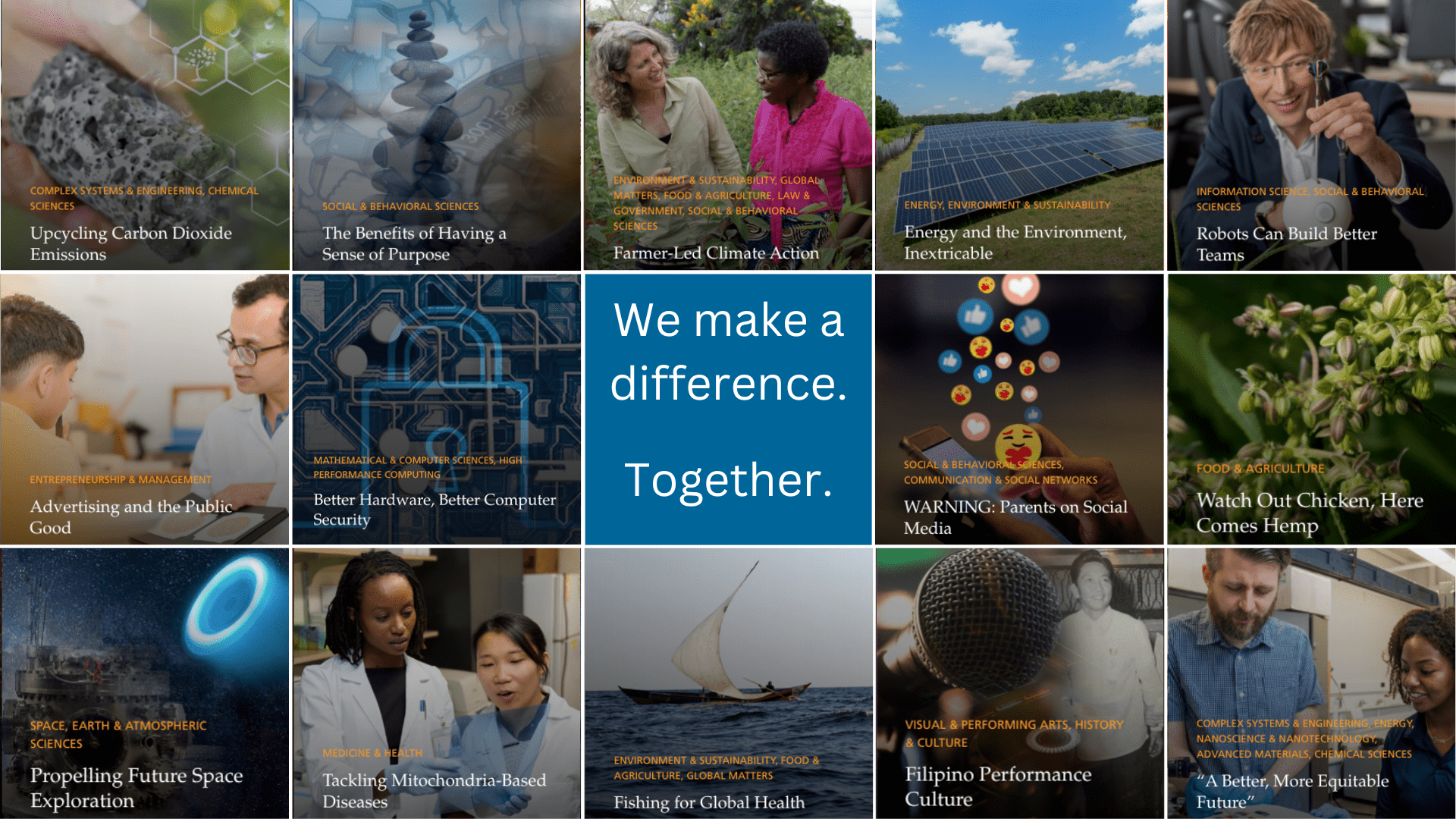Follow the Story
Looking for news? The Cornell Chronicle reports on the latest discoveries and solutions from Cornell researchers. Subscribe to the daily or weekly newsletter.
Are you a researcher at Cornell? The Research Services site provides support for every step of the research endeavor, from preparing a proposal and developing corporate partnerships to managing a project and ensuring compliance.
Interested in the core user facilities, interdisciplinary centers, and the multi-campus innovation ecosystem at Cornell? The new website for the Office of the President of Research and Innovation (OVPRI) is developing rapidly to meet the needs of researchers, funders, industry specialists, and prospective collaborators.
Can’t find what you’re looking for? Contact research@cornell.edu.
A Heartfelt Thank You!

